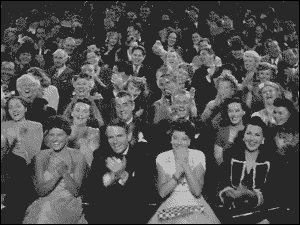Special 2016 “Alan Harrison’s Birthday” Edition: Pack Up the Babies and Grab the Old Ladies – And an Easy-To-Fulfill Wish List

I was born on May 14. Conceived on a hot August night. Neil Diamond would’ve been proud. He was old enough to have a kid then, so…who knows? Brother Love? Are you my papa?
From him, I want flowers.
From you, I want (this is your cue):
- A 137-word card. ( <–Yes, that’s a link.)
- Share your favorite 137 Words post with your social network (that’s “share,” not “like”).
- To join a great company with a great mission. In Seattle.
- Health for The Kid.
- Guidance for The Kid.
- The love of my life to be happy, fulfilled, and curious. You know who you are.
- The ability for you to guide your favorite nonprofit to safety, security, and success.
- Brilliantly measurable missions, better than you believe you’re capable of.
- Complete, successful execution of those brilliant new missions.
- Pie, not cake.
Artists and Non-Offensiveness: The Tyranny of Over-Sensitivity, Feelings, and Participation Trophies

There’s a troubling trend. There’s an absurd unwillingness to offend that seems pervasive among arts creators.
Not that creators are creating “Pleasant Art,” per se. Writers and artists are creating lots of work that is designed to make audiences uncomfortable. Which is good. The work may be about single issues and not terribly complex, but it’s good.
However, there are too many artists raised in atmospheres where everyone wins, even when they lose. In the name of inclusion and self-esteem, they live in a world where, like toddlers, “feeling bad” is simply unacceptable.
They believe they’re special.
To these artists:
- You are not special.
- You do not deserve success.
- Sometimes you lose.
It’s what you do with that information that defines you.
If you believe that nobody should ever have hurt feelings, you’re not doing your job.
Arts Organizations: 137th Post, 137 Thanks, and 137 (of Other People’s) Words That Guide Inspiring Leaders
“We must reject the idea — well-intentioned, but dead wrong – that the primary path to greatness in the social sectors is to become “more like a business.” Most businesses…fall somewhere between mediocre and good.” (Collins)
“If a man does not keep pace with his companions, perhaps it is because he hears a different drummer. Let him step to the music which he hears, however measured or far away.” (Thoreau)
“People don’t buy WHAT you do, they buy WHY you do it.” (Sinek)
“When they say things like, we’re going to do this by the book, you have to ask, what book? Because it would make a big difference if it was Dostoevsky or, you know, ‘Ivanhoe.'” (Anderson)
“‘To be is to do.’ (Socrates) ‘To do is to be.’ (Sartre) ‘Do be do be do.’ (Sinatra)” [Vonnegut compilation]
Arts Boards: What to do When Your Arts Leader(s) No Longer Know the Difference Between Boredom and Discipline
Your theater produced a hit. Tickets sold out for days. Extended as far as you could.
Do it again next year?
No. Your outward-facing mission execution is more important than the sales of any one play. Gauge this particular play and its impact. If it’s a fit (not just a hit), consider rescheduling the next production and run this play until its inevitable end. Then close it forever.
If all your plays are mission-driven, every experience is predictable in its impact. That’s called discipline, and it’s what makes arts organizations successful.
Too many artistic directors choose to produce vanity events instead. That’s called boredom, and board chairs have to act on that kind of crisis in leadership.
Coke may make many products, but they still make Coke. Remember what happened when they got bored with Coke’s taste?
How You Can Solve Diversity With Your Nonprofit Arts Organization!
You can’t.
Arts organizations challenge, reflect, and engage. They don’t solve.
And remember, race is only one small bit of cultural diversity, not all of them. Just as the opposite of love isn’t “hate,” but “indifference;” the opposite of diverse isn’t “white,” but “homogeneous.”
I read a political blog recently about the Democratic Party presidential race. What troubled me were these words:
“What I’m crossing my fingers for is that in ten years or so we’ll get… a young,
charismatic democratic socialist who runs for president. (Preferably this
candidate would be a woman or a non-white person or, ideally, both.)”
Isn’t that parenthetical statement just as intolerant as one where “not” had been inserted after “would?”
Diversity isn’t only about race or gender or any of myriad other categories. It’s about power, shared equally, with specific impact.
The Politics of Charity: Minding Your Speaking Your Mind
Some of us are more candid than we probably ought to be. We put ourselves out there. But remember this as you read this blog and other business columns: things change.
Each charity has a special mission (or at least should) that may relate to other charities in the universe, but not exactly. There is no right or wrong way to do it. And expressing a thought in a column – such as 137 Words – does not equate to either a Sermon on the Mount or a whisper from Jiminy Cricket about that charity. It is merely an expression based on the writer’s own vantage point.
So when Covey, Collins, Porter, or even Harrison proclaim a truth, it’s not backpedaling to say that the “truth” is a reaction to what’s happening right now. And that things change.



